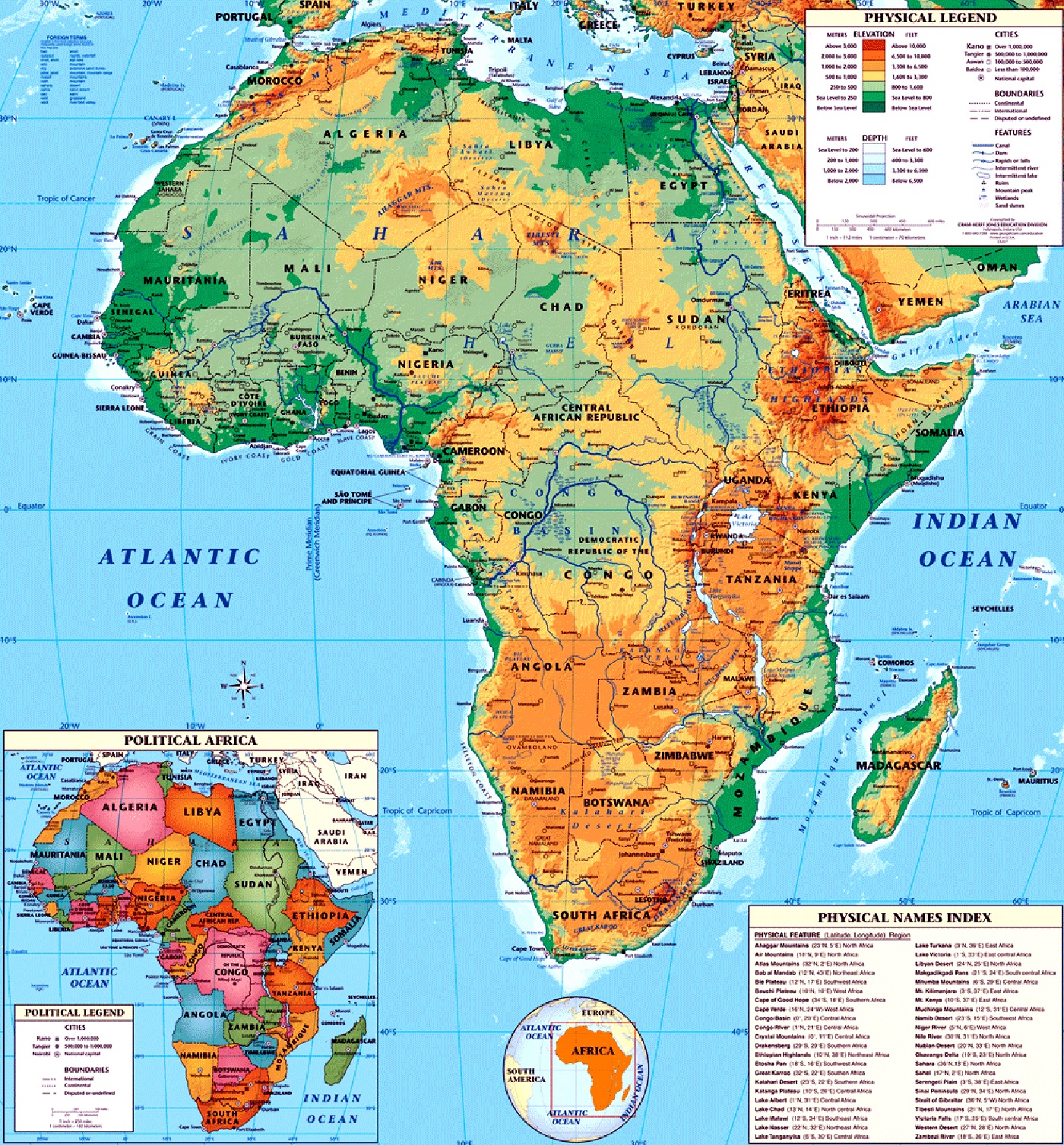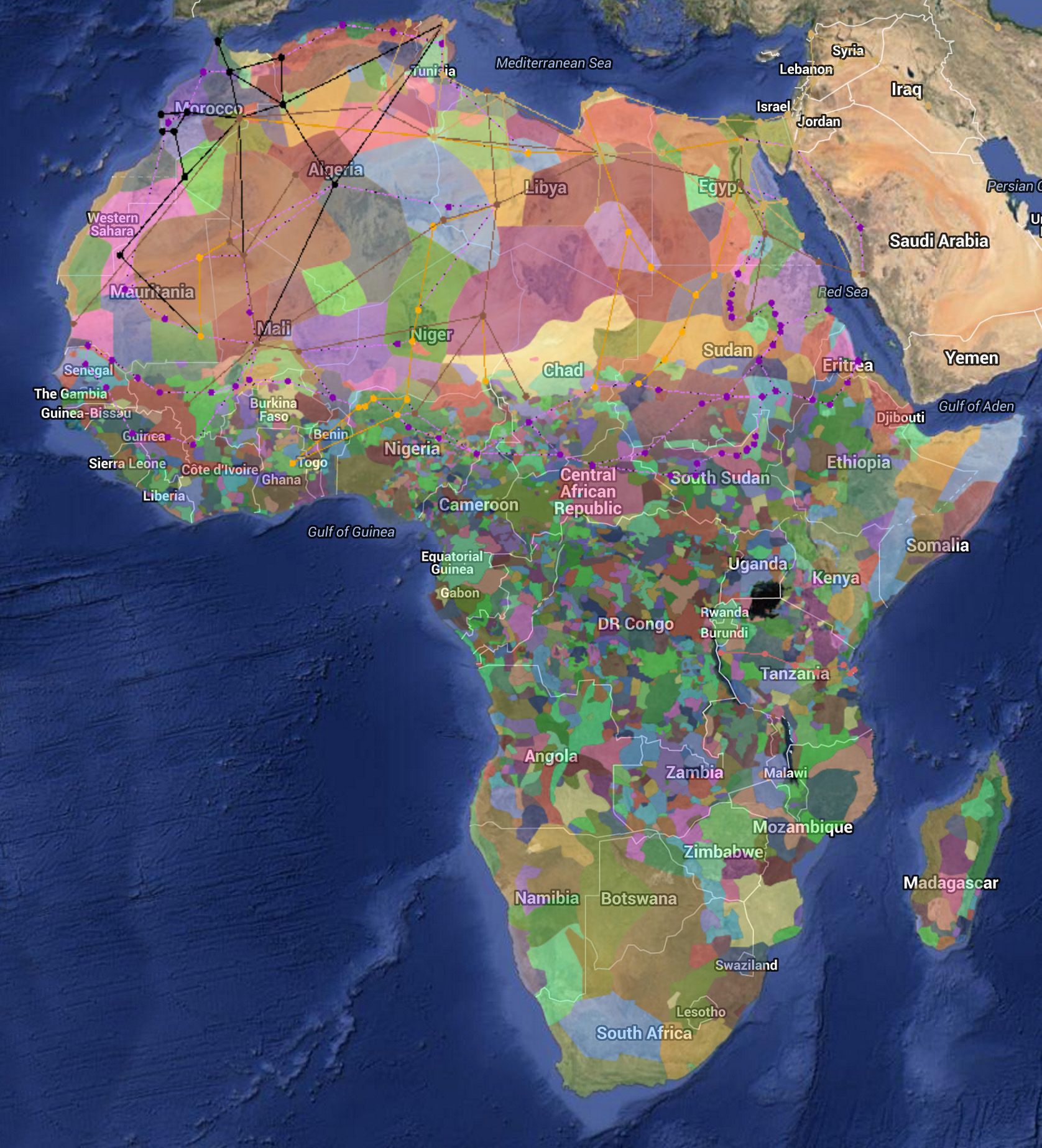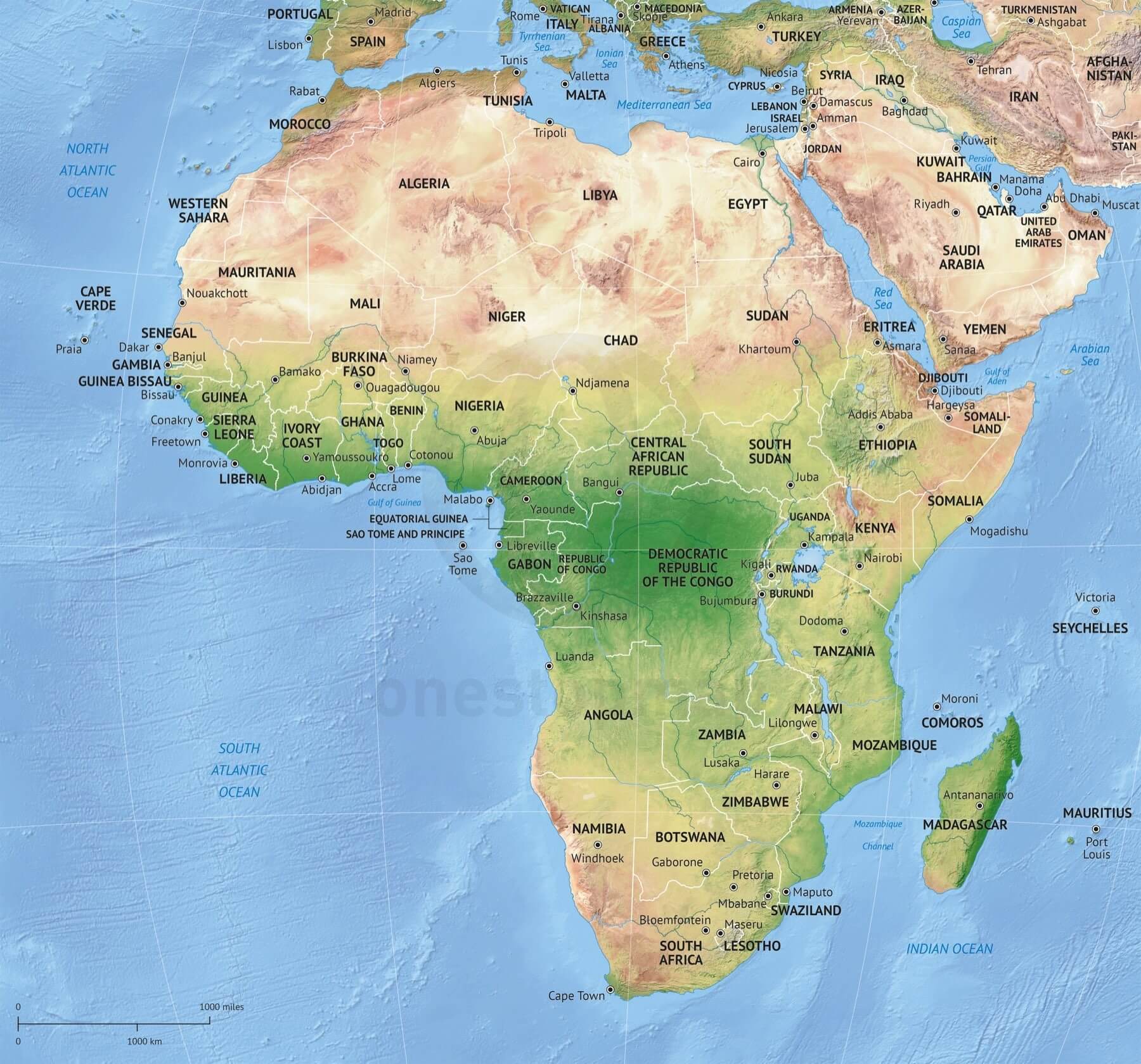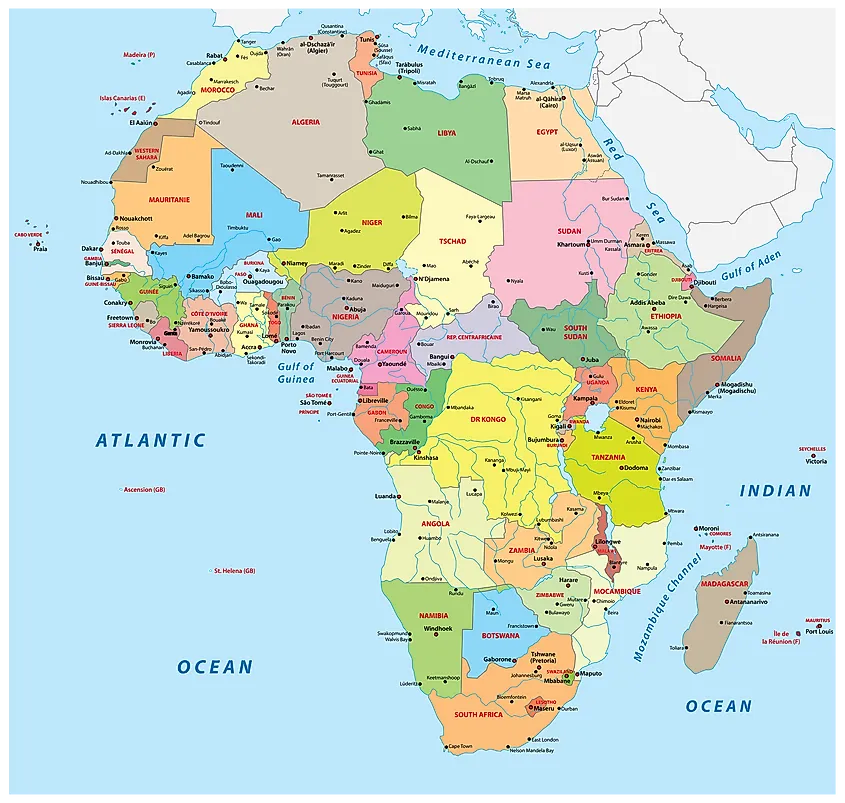11, Apr 2024
The Geography Of Africa: A Continent Of Diverse Nations
The Geography of Africa: A Continent of Diverse Nations
Related Articles: The Geography of Africa: A Continent of Diverse Nations
Introduction
With enthusiasm, let’s navigate through the intriguing topic related to The Geography of Africa: A Continent of Diverse Nations. Let’s weave interesting information and offer fresh perspectives to the readers.
Table of Content
The Geography of Africa: A Continent of Diverse Nations

Africa, the second-largest continent in the world, is a tapestry of diverse cultures, landscapes, and histories. Its vast expanse, encompassing over 30 million square kilometers, is home to 54 independent states, each with its own unique identity and contribution to the global tapestry. This article delves into the intricate geographical mosaic of Africa, exploring the factors that have shaped its political boundaries, the significance of its diverse nations, and the challenges and opportunities that arise from its complex geopolitical landscape.
A Continent Divided: The Evolution of African Boundaries
The current political map of Africa is a product of a complex and often turbulent history. Colonial powers, driven by economic and strategic interests, carved up the continent during the 19th century, disregarding existing cultural and ethnic boundaries. This arbitrary division, known as the "Scramble for Africa," left a lasting legacy of political instability and conflict.
The process of decolonization in the 20th century brought about the creation of independent African states. However, the colonial borders remained largely intact, contributing to ongoing tensions and disputes. The artificial nature of these boundaries often meant that different ethnic groups were forced to live together within the same state, while others were separated by arbitrary lines drawn on maps.
A Mosaic of Cultures: The Diversity of African Nations
Despite the challenges of its colonial past, Africa is a continent of remarkable diversity. From the bustling metropolises of Cairo and Lagos to the remote villages of the Sahara Desert and the lush rainforests of the Congo Basin, Africa offers a rich tapestry of cultures, languages, and traditions.
Linguistic Diversity: Africa is home to over 2,000 languages, making it one of the most linguistically diverse continents in the world. These languages represent a rich heritage of oral traditions, storytelling, and cultural expression.
Ethnic Diversity: The continent is home to hundreds of different ethnic groups, each with its own unique customs, beliefs, and social structures. This diversity is reflected in the vibrant arts, music, and dance traditions found throughout Africa.
Religious Diversity: Africa is a continent of religious pluralism, with a diverse range of faiths practiced across its vast expanse. Christianity, Islam, traditional African religions, and other faiths coexist, contributing to the continent’s rich cultural mosaic.
The Importance of Understanding Africa’s Political Geography
Understanding the political geography of Africa is crucial for several reasons:
- International Relations: Africa’s diverse nations play a significant role in global affairs, contributing to international organizations, participating in diplomatic negotiations, and shaping global policy.
- Economic Development: The continent’s vast natural resources and growing population present significant opportunities for economic development. Understanding the political landscape is essential for fostering regional integration, promoting trade, and attracting foreign investment.
- Peace and Security: The legacy of colonial boundaries and unresolved conflicts continue to pose challenges to peace and stability in Africa. Understanding the underlying political and social dynamics is essential for addressing these challenges and fostering a more peaceful and prosperous continent.
Challenges and Opportunities
Africa faces numerous challenges, including poverty, inequality, conflict, and climate change. However, the continent also holds immense potential for growth and development.
- Economic Growth: With a rapidly growing population and a wealth of natural resources, Africa has the potential to become a major player in the global economy.
- Technological Advancements: The continent is experiencing a rapid rise in technology adoption, particularly in areas like mobile banking and digital commerce.
- Youth Empowerment: Africa has the youngest population in the world, presenting a unique opportunity for innovation, entrepreneurship, and social change.
FAQs: The Political Geography of Africa
Q: How many countries are there in Africa?
A: There are 54 independent states in Africa.
Q: What are the largest countries in Africa by land area?
A: The largest countries in Africa by land area are:
- Algeria
- Democratic Republic of the Congo
- Sudan
- Libya
- Chad
Q: What are the most populous countries in Africa?
A: The most populous countries in Africa are:
- Nigeria
- Ethiopia
- Egypt
- Democratic Republic of the Congo
- South Africa
Q: What are some of the major regional organizations in Africa?
A: Some of the major regional organizations in Africa include:
- The African Union (AU)
- The Economic Community of West African States (ECOWAS)
- The Southern African Development Community (SADC)
- The East African Community (EAC)
- The Common Market for Eastern and Southern Africa (COMESA)
Tips for Understanding Africa’s Political Geography
- Study Maps: Familiarize yourself with the political map of Africa, paying attention to the boundaries of different countries and their relative locations.
- Research History: Learn about the colonial history of Africa and the factors that led to the formation of its current political boundaries.
- Explore Culture: Dive into the diverse cultures and traditions of different African nations, understanding their unique histories and perspectives.
- Engage with Media: Stay informed about current events in Africa, following news reports and analyses from reputable sources.
- Support Organizations: Support organizations working to promote peace, development, and human rights in Africa.
Conclusion
Africa is a continent of immense diversity and complexity. Its political geography, shaped by a complex history, continues to influence its development and challenges. Understanding the intricate mosaic of its nations is essential for fostering peace, promoting development, and contributing to a more prosperous and equitable future for the continent and the world. By engaging with Africa’s rich cultural heritage, appreciating its unique challenges, and supporting its aspirations for a brighter future, we can contribute to a more interconnected and understanding world.








Closure
Thus, we hope this article has provided valuable insights into The Geography of Africa: A Continent of Diverse Nations. We appreciate your attention to our article. See you in our next article!
- 0
- By admin
